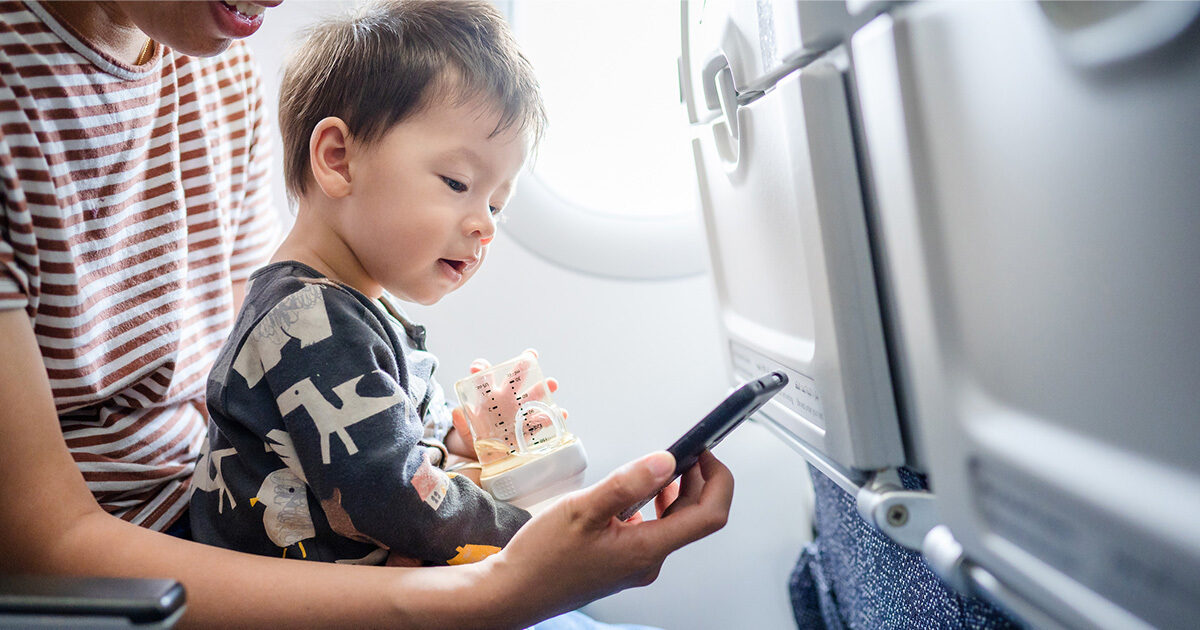Traveling Safely With Your Little Ones
UT Health Austin pediatrician offers tips to keep young children happy and healthy on the go
Reviewed by: Alefiyah Malbari, MD
Written by: Lauren Schneider

Traveling with young children can feel like an adventure in itself. Whether you’re heading to a sunny beach or visiting family across the country, the journey may require extra preparation to keep everyone safe, comfortable, and happy. With careful planning and expert advice, you can turn potential travel challenges into cherished family memories.
“Traveling with young children is a personal family decision,” says UT Health Austin pediatrician Alefiyah Malbari, MD, who serves as the Chief of Dell Children’s Medical Group Pediatrics Mueller, a clinical partnership between Dell Children’s Medical Center and UT Health Austin. “With proper preparation, your child can have a safe and enjoyable experience, no matter the destination.”
Before Your Trip
<br>Plan Ahead
Every family is unique, and so are their travel preferences and needs. While some prefer the simplicity of relaxing in a single destination, others embrace the excitement of multi-stop adventures.
“Parents of young children often choose to stay in one location for the duration of their trip,” shares Dr. Malbari. “Although longer, multi-leg journeys can be more demanding, they’re entirely manageable through thoughtful planning.”
Stay Up to Date on Vaccinations
Ensure your child is fully vaccinated and up to date on all recommended vaccinations.
“As pediatricians, we strongly recommend that children be vaccinated before they travel, especially if they are traveling internationally” notes Dr. Malbari. “Parents are encouraged to schedule a vaccine appointment when their child reaches two months of age.”
Vaccines administered at two months include:
- Diphtheria, tetanus, and pertussis (DTaP)
- Hepatitis B
- Haemophilus influenzae type B (Hib)
- Pneumococcal conjugate
- Polio
- Rotavirus
“Booster doses of these vaccines are recommended at four and six months,” continues Dr. Malbari. “At six months, your child can also receive the annual influenza (flu) and COVID-19 vaccines, which help fight off respiratory illnesses.”
For international travel, additional vaccines, such as measles, mumps, rubella (MMR) or region-specific shots for typhoid or yellow fever, may be required.
“The MMR vaccine is typically given at age one, but children traveling internationally may receive it as early as six months of age,” adds Dr. Malbari. “Families traveling abroad should speak with their pediatrician well in advance to plan for any additional vaccines.”
In Transit
<br>Pack Essentials for Comfort
Bring along soothing items, such as pacifiers, favorite toys and games, or a cozy blanket, to comfort your child during the trip. If you are traveling by air, keep these items in your carry-on bag to make them easily accessible.
“Always have acetaminophen (Tylenol) on hand and if your child is over six months old, ibuprofen,” advises Dr. Malbari. “These medications can help alleviate discomfort and reduce fever, keeping your child comfortable.”
Prioritize Car Seat Safety
No matter the distance, using the proper car seat is essential for your child’s safety.
“Choose a car seat appropriate for your child’s age, weight, and height,” emphasizes Dr. Malbari. “From birth to two years of age, your child’s car seat should be rear-facing, positioned with them facing the rear window of the car.”
“Your child can transition to a front-facing car seat at two years old but should remain in a rear-facing seat if they still meet the height and weight requirements,” Dr. Malbari adds. “Even if their legs bend while seated, rear-facing seats provide better protection in the event of an accident.”
At Your Destination
<br>Adjust to New Sleep Schedules
Travel can disrupt even the most well-established sleep routines. Ensuring your infant or toddler gets adequate sleep can be challenging enough at home, but add a new time zone, and the task can seem daunting.
“Don’t stress over sleep schedules while traveling,” encourages Dr. Malbari. “Children are resilient and will catch up on rest.”
To combat jet lag, help your child adjust to the new time zone by staying awake until local bedtime. Melatonin, available in kid-friendly doses as tablets, gummies, or liquid droplets, can assist with sleep transitions. However, avoid medications such as sleeping pills or Benadryl to induce drowsiness.
“It is never a good idea to give your child medication they don’t need for its intended purpose,” warns Dr. Malbari.
Be Cautious With Food and Water
In some regions, food and water can cause illness, so it’s important to take precautions to avoid sickness. If you’re traveling to an area where clean water may be scarce, it’s a good idea to use bottled water for drinking, brushing teeth, and preparing infant formula.
“When eating out, opt for cooked foods and avoid raw or unpasteurized items like seafood or dairy, which can harbor harmful bacteria,” says Dr. Malbari.
Enjoy the Journey
While traveling with young children requires more planning and flexibility, the memories and experiences you create as a family are well worth the effort.
“Don’t hesitate to consult your pediatrician if you have specific concerns,” encourages Dr. Malbari. “They can provide tailored advice based on your destination and your child’s individual needs.”
For more information about Dell Children’s Medical Group Pediatrics Mueller or to request an appointment, call 1-512-324-0975 or visit here.